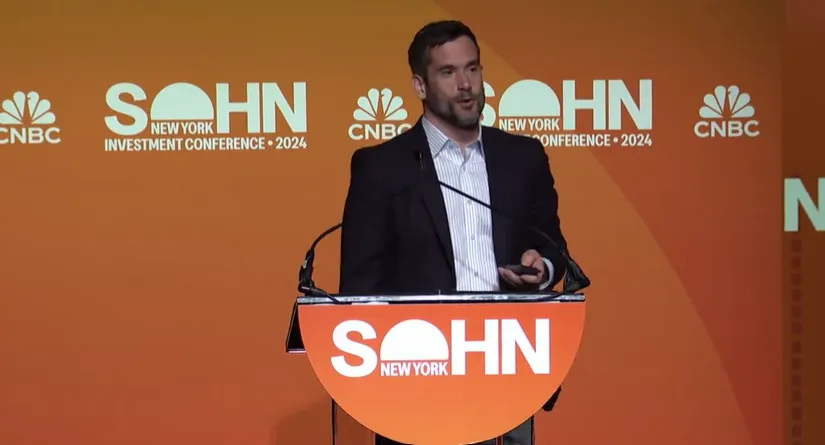The Most Important Thing
@wolfejosh Edition
23 timeless insights over 17 years of writing on investing and on life*
*in chronological order
@wolfejosh Edition
23 timeless insights over 17 years of writing on investing and on life*
*in chronological order
"The single most important thing in business and personal relationships today and always is TRUST"
-@wolfejosh (2004)
1/23
-@wolfejosh (2004)
1/23

"'Stay close to the money.' If you're not close to the stream of cash flow, if you're not directly responsible for winning the bread, and bringing in cash, you're expendable... Cash flow is a lifeblood."
-@wolfejosh (2004)
2/23
-@wolfejosh (2004)
2/23

"one of the most important principles of investing is that returns of capital are highest where capital is scarce"
-@wolfejosh (2005)
3/23
-@wolfejosh (2005)
3/23

"Time is the most important thing our brain uses to perceive causality. Anything more than 2 seconds has been shown to inhibit our ability to see a cause and effect relationship - unless a reason is given."
-@wolfejosh (2005)
4/23
-@wolfejosh (2005)
4/23

"And in most businesses... people end up being the most important thing you've got. Remember that more often than not you're betting not on a business, but on a person that will build, evolve and adapt a business"
-@wolfejosh (2006)
5/23
-@wolfejosh (2006)
5/23

"the two most important things that kids (especially inner-city kids) require for a successful education are (1) picking the right heroes and (2) developing a deep desire to learn"
-@wolfejosh (2009)
6/23
-@wolfejosh (2009)
6/23

"Today, we still need liquid fuels to power our cars - but soon enough we'll have electric fleets and the most important question won't be the price of oil but the price of electricity to run our cars"
-@wolfejosh (2010)
7/23
-@wolfejosh (2010)
7/23

"A phenomenal individual is... a spinning force that pulls people in. The most important thing we can do as a firm is have the good judgment in finding and picking these people and convincing them that Lux is their partner for the next 5 or 10 years"
-@wolfejosh (2011)
8/23
-@wolfejosh (2011)
8/23

"'Edge' is the most important thing any competitor in any arena must possess... Overt or covert, widely signaled or held as trade secret, it is a competitive advantage that makes playing unfair"
-@wolfejosh (2014)
10/23
-@wolfejosh (2014)
10/23

"Yahoo founder Jerry Yang told me he thought the market had jumped the shark... with Snapchat, Oculus, and WhatsApp. But he said the most important thing I heard: he capitulated. Now, he said, he thought it could go on for two more years and maybe more"
-@wolfejosh (2015)
11/23
-@wolfejosh (2015)
11/23

The most important quality in a founder "is an almost psychotic competitive posture that HAS to be coupled with good ethics"
-@wolfejosh (2017)
12/23
-@wolfejosh (2017)
12/23

"The most important thing in our lives are not our possessions but the people we love."
-@wolfejosh (2017)
13/23
-@wolfejosh (2017)
13/23

"the two most important questions [were/are]... Number one: Why should you exist?... Number two: If your hypothesis is right that these are the next waves, what is going to stop Kleiner, Sequoia, Benchmark, Accel from blowing you out of the water?"
-@wolfejosh (2018)
14/23
-@wolfejosh (2018)
14/23

"I think the most important thing in business... I am psychotic about competitive advantage. What can you do, or what can you assert that you can do that will scare competitors that nobody else can do? From that flows good unit economics"
-@wolfejosh (2018)
15/23
-@wolfejosh (2018)
15/23

"The most important conversation, the most memorable, was when we went to Bill... all these crazy areas of emergent tech, and I said, 'I want to put our money where our mouth is now in this space, actually I want to put your money where our mouth is'"
-@wolfejosh (2018)
16/23
-@wolfejosh (2018)
16/23

"entropy, to me, I think is one of the not widely understood and most important concepts"
-@wolfejosh (2018)
17/23
-@wolfejosh (2018)
17/23

"Survive is number one... To me, it is the most important thing in life. Some people don't want to have kids, and some, but I just, to me it's everything."
-@wolfejosh (2018)
18/23
-@wolfejosh (2018)
18/23

"today, the technology, and this is actually a really crazy thing. There are tools, like something called generative design. This to me is one of the most important areas of technology that I want my kids to understand"
-@wolfejosh (2018)
19/23
-@wolfejosh (2018)
19/23

"the most important thing we can do is attract the best founders because they are the people who do everything"
-@wolfejosh (2019)
20/23
-@wolfejosh (2019)
20/23

On the most important things that people don't know about him: "I love heavy metal and hardcore. I grew up going to a mosh pit in Brooklyn... And I like skateboarding and I like people that just have this sort of gritty rebel side"
-@wolfejosh (2019)
21/23
-@wolfejosh (2019)
21/23

"I think the single most important thing for anybody is to build your brand, be differentiated, be indispensable, stay close to the money, find where the capital is flowing and stay close to it"
-@wolfejosh (2019)
22/23
-@wolfejosh (2019)
22/23

"the most important competitive advantage is trust, with the reputation that you have... what legacy you leave."
-@wolfejosh (2020)
23/23
-@wolfejosh (2020)
23/23

And if you're wondering who @wolfejosh is and why he's worth listening to...
https://twitter.com/kgao1412/status/1257394062438682624
• • •
Missing some Tweet in this thread? You can try to
force a refresh














